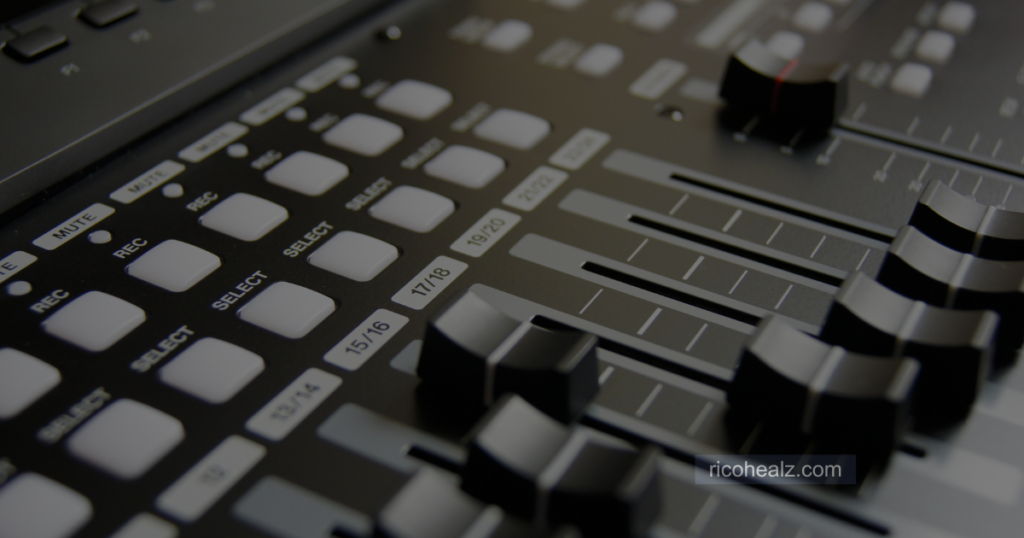What Do Binaural Beats Actually Do? Understanding the Science Behind Them
Introduction:
What do binaural beats actually do? Binaural beats have been gaining popularity as a form of sound wave therapy that can help with a variety of issues such as anxiety, stress, pain management, and sleep problems. But what exactly are binaural beats and how do they work?
Simply put, binaural beats are two different sound frequencies presented to each ear separately, with a difference in frequency between them. The brain then processes these two different frequencies and perceives a third frequency, which is the difference between the two presented frequencies. This third frequency is known as the binaural beat and is thought to have a variety of effects on brain function and mental states.
While there is still much research to be done on the effectiveness of binaural beats, many people report experiencing benefits such as increased relaxation, improved focus, and reduced anxiety. In this article, we will explore the science behind binaural beats and what they actually do, as well as the potential benefits and limitations of using them as a form of therapy.

What are Binaural Beats?
Binaural beats are a type of auditory illusion that occurs when you listen to two different tones with slightly different frequencies, one in each ear. When the brain processes these two sounds, it creates a third tone, which is the difference between the two frequencies. This new tone is known as the binaural beat.
Binaural beats are usually created using headphones, which allow each ear to hear a different tone. The difference in frequency between the two tones is typically small, usually less than 30 Hz. The brain then perceives the binaural beat as a single tone that has a frequency equal to the difference between the two original tones.
Research has shown that they can affect brainwave activity and have a range of potential benefits, including improved focus, relaxation, and sleep. However, the evidence is still limited, and more research is needed to fully understand how binaural beats work and their potential benefits.
Although binaural beats have been used for many years, they have gained popularity in recent years, with many people using them as a form of self-help or meditation tool. Some people claim that binaural beats can help them achieve a meditative state more easily, reduce anxiety, and improve mood.
How Do Binaural Beats Work?
Binaural beats work by playing two different frequencies in each ear. These frequencies are slightly different from each other, and the brain perceives them as a single tone with a frequency equal to the difference between the two frequencies. For example, if a 300 Hz tone is played in one ear and a 310 Hz tone is played in the other ear, the brain will perceive a single tone with a frequency of 10 Hz.
When the brain perceives this tone, it begins to produce brainwaves with a frequency that matches the perceived tone. This is known as entrainment. Entrainment can help the brain to enter a specific state, such as relaxation or focus, depending on the frequency of the binaural beats.
Research has shown that binaural beats can influence brainwaves in a variety of ways. For example, binaural beats with a frequency of 4-7 Hz, known as theta waves, have been shown to help induce a relaxed state. Binaural beats with a frequency of 8-13 Hz, known as alpha waves, have been shown to help improve focus and creativity. Binaural beats with a frequency of 14-30 Hz, known as beta waves, have been shown to help increase alertness and concentration.

What Are the Benefits of Binaural Beats?
Reducing Anxiety and Stress
Binaural beats have been found to help reduce anxiety and stress levels in individuals. The beats stimulate the brain to produce alpha and theta brainwaves, which are associated with relaxation and calmness. A study published in the Journal of Alternative and Complementary Medicine found that participants who listened to binaural beats for 60 days experienced a significant reduction in anxiety and stress levels.
Improving Sleep Quality
Binaural beats can also help improve sleep quality. Listening to binaural beats before bed can help promote relaxation and reduce racing thoughts, making it easier to fall asleep. A study published in the Journal of Sleep Research found that participants who listened to binaural beats before bed experienced improved sleep quality and increased time spent in deep sleep.
Enhancing Focus and Concentration
Binaural beats can also enhance focus and concentration. The beats stimulate the brain to produce beta brainwaves, which are associated with alertness and focus. A study published in the International Journal of Psychophysiology found that participants who listened to binaural beats while performing a task showed improved performance and increased focus compared to those who did not listen to the beats.
Boosting Creativity and Productivity
Binaural beats have also been found to boost creativity and productivity. The beats stimulate the brain to produce gamma brainwaves, which are associated with creativity and problem-solving. A study published in the Journal of Cognitive Enhancement found that participants who listened to binaural beats showed increased creativity and problem-solving abilities compared to those who did not listen to the beats.
In conclusion, binaural beats have several potential benefits, including reducing anxiety and stress, improving sleep quality, enhancing focus and concentration, and boosting creativity and productivity. However, more research is needed to fully understand the effects of them on the brain and to determine the most effective ways to use them.

Are There Any Risks or Side Effects?
Binaural beats are generally considered safe and have been used for many years as a tool for relaxation, meditation, and sleep improvement. However, some people may experience negative side effects, although they are rare and usually mild. Here are some of the potential risks and side effects:
- Depression: Some studies have linked binaural beats to increased feelings of depression. However, these studies are limited, and more research is needed to confirm this link.
- Irritability or Frustration: Some listeners have reported feeling irritable or frustrated while listening to binaural beats. To prevent this discomfort, it is recommended to choose tracks with additional sounds, such as white noise.
- Hearing Loss: Listening to any sound at or above 85 decibels for lengthy periods can lead to hearing loss. So, it is important to keep control over the volume buttons and avoid listening to binaural beats at high volumes.
It is worth noting that most of the negative side effects of binaural beats are similar to those that may occur during meditation or other relaxation techniques. Therefore, it is important to use binaural beats responsibly and avoid overusing them. If you experience any negative side effects, stop using them and consult a healthcare professional.
Overall, binaural beats can be a useful tool for promoting relaxation, meditation, and sleep. However, it is important to use them responsibly and be aware of the potential risks and side effects.
Conclusion
While binaural beats have gained popularity in recent years, their effectiveness remains a topic of debate among researchers and practitioners. Some studies suggest that binaural beats can have positive effects on mood, sleep, and cognitive function, while others have found no significant benefits.
It is important to note that binaural beats should not be used as a substitute for medical treatment or professional therapy. While they may provide temporary relief from stress or anxiety, they are not a cure for underlying mental health conditions.
If you are interested in trying binaural beats, it is recommended to start with low frequencies and gradually increase the intensity over time. It is also important to use high-quality headphones and listen to the beats in a quiet environment.
Overall, while the science behind binaural beats is still evolving, they may offer a promising tool for relaxation and focus. As with any new therapy or treatment, it is important to approach binaural beats with an open mind and a healthy dose of skepticism.


I loved as much as you will receive carried out right here The sketch is attractive your authored material stylish nonetheless you command get got an impatience over that you wish be delivering the following unwell unquestionably come more formerly again since exactly the same nearly a lot often inside case you shield this hike
My brother recommended I might like this web site He was totally right This post actually made my day You cannt imagine just how much time I had spent for this information Thanks
I was suggested this web site by my cousin Im not sure whether this post is written by him as no one else know such detailed about my trouble You are incredible Thanks
I just could not depart your web site prior to suggesting that I really loved the usual info an individual supply in your visitors Is gonna be back regularly to check up on new posts
Hi Neat post There is a problem along with your website in internet explorer would test this IE still is the market chief and a good section of other folks will pass over your magnificent writing due to this problem
I do trust all the ideas youve presented in your post They are really convincing and will definitely work Nonetheless the posts are too short for newbies May just you please lengthen them a bit from next time Thank you for the post
Wonderful beat I wish to apprentice while you amend your web site how could i subscribe for a blog web site The account aided me a acceptable deal I had been a little bit acquainted of this your broadcast provided bright clear idea